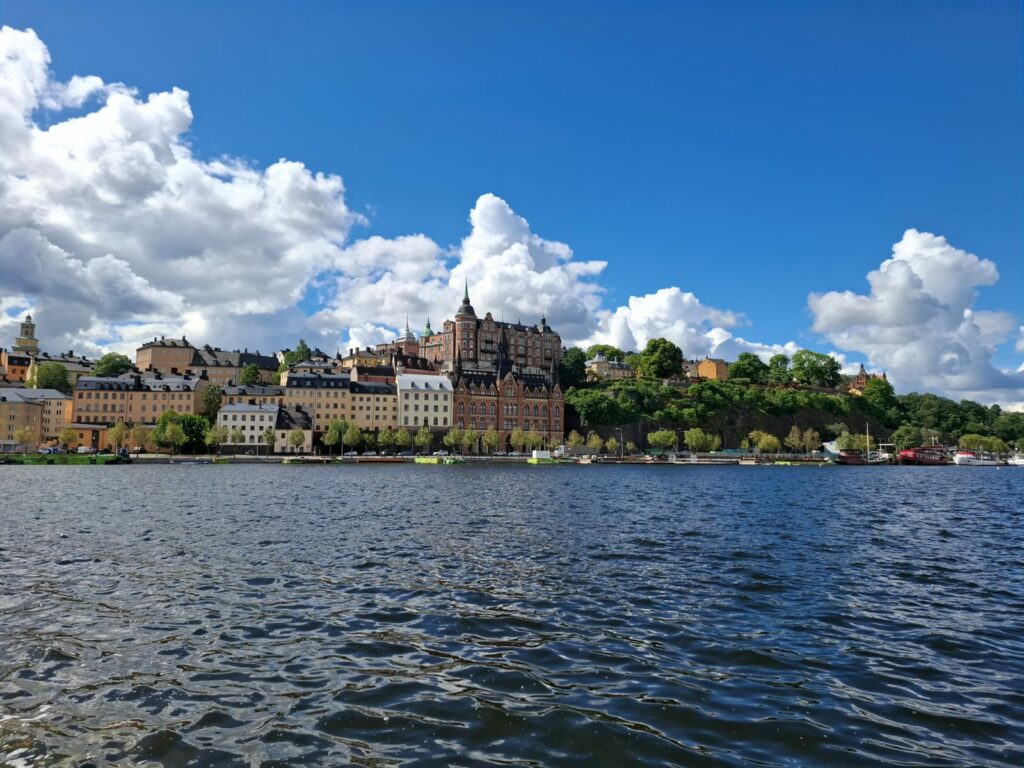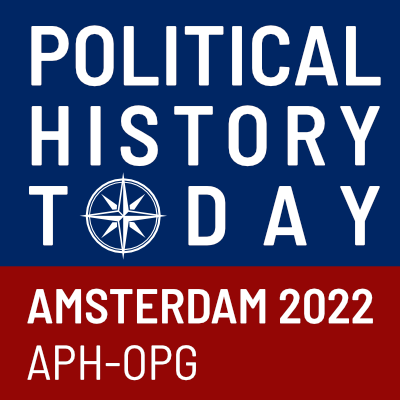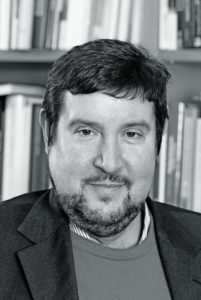Change of Treasurer
The Association for Political History is pleased to announce that Dr. Lotte van Hasselt has been appointed as the new Treasurer of the Association, succeeding Dr. Margit van der Steen.
We extend our sincere gratitude to Margit for her dedicated service and valuable contributions during her tenure. We warmly welcome Lotte to the role and look forward to her involvement in guiding the Association’s financial stewardship.
Call for Panels and Papers – APH Conference, Antwerp, 18-20 June 2025
We are thrilled to announce the 12th International APH Conference: How to decolonize political history?

New Board Members
During the Board Meeting of 16 December 2024, the APH welcomed three new Members: Professor Dr. Jörn Leonhard (Albrecht-Ludwigs-Universität Freiburg), Dr. Robert Saunders (Queen Mary University of London), and Professor Dr. Richard Toye, who will take over from Professor Dr. Jon Lawrence as representative of the University of Exeter. We look forward to continue our activities with them in 2025!
New Board Members and Chair
During the Board Meeting at our annual conference, which took place at Södertörn University (12-14 June 2024), the APH welcomed three new Members: Prof. Dr. Barbara Klasse (University of Gdańsk), Dr. Jaroslav Valkoun (Charles University Prague), and Prof. Dr. Johanna Rainio-Niemi (University of Helsinki).
Prof. Dr. Henk te Velde (Leiden University) stepped down as our Chair and the Board elected Prof. Dr. Pasi Ihalainen (University of Jyväskylä) as the new Chair.

Call for Panels and Papers – Annual APH Conference 2024 – 12-14 June 2024, Södertörn University, Sweden
We are thrilled to announce the 11th International APH Conference: Political Histories of Conflict: Social Cleavages, Political Ideologies, Clashes of Sovereignty
Current events require a major revaluation of traditional approaches to social unrest, political division, and war. This conference seeks to take stock from a historical perspective and stimulate deeper inquiries into the causes and processes of political conflict, thus investigating historical issues that are highly relevant in the world of today.
Recent years have seen established domestic and global ways of resolving conflicts threatened by increasing social cleavages, growing political polarisation, and state-led warmongering and aggression. Historically, reformist industrial relations and the system of liberal democracy have functioned as platforms for the aggregation of opposed interests in modern European society. In international relations, the “Concert of Europe”, imperial governance, the World Wars, the Cold War, and post-Cold War efforts have offered different models of cooperation, conflict, and containment. The conference seeks to enhance our learning from these and other historical systems and structures to gain a better understanding of present developments. Our conception of historical lessons is to be re-evaluated and reformulated in the light of recent events such as the Russian attack on Ukraine.
Given the need for reformulation, the conference calls for novel approaches to political conflict and conflict resolution across societal, political, and international relations. It attempts to incorporate new ways of discussing clashes between interest groups, political dissent, mechanisms of conflict resolution, colonial ambiguities, and situations of democratic breakdown or war.
Södertörn University’s research profile has a special emphasis on Baltic and East Central European Studies. We have long acknowledged the need to reach out to scholars and research centres from these regions, inviting them to join in international discussions on political history. From this perspective it is crucial to enhance the pan-European profile of the APH at large and thereby promote East–West collaboration in developing new insights on the nature of conflict and the future of Europe. In addition to other topics, we therefore specifically call for panels and papers that address the Baltic Sea Region and East Central Europe. Scholars from these regions are also especially encouraged to submit proposals.
At the same time, the conference expects a wealth of historical case studies that are
situated in different historical settings and thus will help us enhance the conceptualisations of conflict in the humanities and social sciences. A variety of cases will enrich conflict studies in the broad meaning of the term, encompassing both domestic and international relations. Similarly, we encourage a variety of methods; for example, oral history and digital approaches alongside traditional document analysis. Finally, the conference explores to what extent political history is to be reframed as a history of conflicts and conflict resolution, with significant lessons for our time.
A broad understanding of the field of political history makes it a fruitful basis for research exchange. It can function as a platform for the history of institutions, parties, public policies, social movements, ideas and ideologies, and it includes political culture and political behaviour. Moreover, international relations and military history as well as transnational relations and global civil society are included in our understanding of political history. The conference will bring these different aspects together by means of the concept of political conflict and conflict resolution: structures of social relations, the political realm, the historical role of ideas, and cross-border efforts that are politically relevant.
The APH is devoted to the interaction of doctoral students and other emerging scholars, on the one hand, and more experienced researchers, on the other, and encourages especially younger scholars to submit proposals and to contribute with papers.
We are calling for panel and paper proposals addressing various kinds of historical
conflicts. 1) Proposals for 90-minute panels include a 250–400 words overarching abstract as well as the titles of three to four papers with 150 – 250 words paper abstracts. Short bionotes and e-mail addresses for all participants are to be provided, including for the session chair and a potential commentator (commentators are optional for sessions of 3 papers only). 2) Proposals for individual papers include a 150–400 words paper abstract as well as a short bio-note and e-mail address of the presenter.
Deadline: 15 February 2024 4 March 2024. Please submit your proposal to: aph2024@sh.se. The conference is planned as a physical event at Södertörn University|Stockholm, 12–14 June 2024.
Organizing committee:
Prof. Dr. Andreas Åkerlund,
Prof. Dr. Norbert Götz,
Asc. Prof. Yulia Gradskova,
Dr. Francesco Zavatti.

Vacancy: web editor (Association for Political History)
We’re excited to announce that the Association for Political History is looking for a new web editor. In this role you are responsible for keeping the APH’s website and social media accounts up to date. The ideal candidate has an affinity with online platforms, C2 proficiency in English, and is working on a PhD in international political history (1st or 2nd year).
Together with the Board’s secretariat, you support the APH’s aim of strengthening international cooperation in the fields of higher education and research. One of the main activities of the APH is organising annual conferences hosted by the affiliated universities throughout Europe. The paid appointment is initially for one year, with the possibility of an extension.
If you are a well-organised, digitally skilled PhD candidate in international political history, we’d love to hear from you.
To learn more and/or apply send your CV + cover letter to l.b.lauret@hum.leidenuniv.nl (Lauren Lauret) by 1st of December 2023
Call for Papers | International APH Conference 2023 | The Mobility of Politics, the Politics of Mobility.
We are thrilled to announce the eight International APH PhD Conference: The Mobility of Politics, The Politics of Mobility. 7-9 June, 2023. Padua, Italy.
In recent years, a lively interdisciplinary dialogue has developed between the so-called mobility studies and the humanities, broadly involving historiography as well. Over the past five years, the Padua department hosting this conference has developed a project exploring the “mobility paradigm” from a variety of humanistic perspectives. The project culminated in the creation of a Centre for Advanced Studies in Mobility and the Humanities (Mohu) and a digital humanities laboratory (MobiLab).
Many lines of enquiry in political history open up if we focus on how mobility and circulation have affected political experiences over the last two hundred years in different areas: from the circulation of political ideas and texts to migration policies; from the transnational exchange of political practices and activism, to the proliferation of political institutions and ideologies.
We are seeking abstracts from graduate students that tackle these topics as imaginatively and broadly as possible.
International Conference 2022. Political History Today: Exploring New Themes.
The international OPG-APH conference Political history today: exploring new themes was a great success. Over 100 participants were active in eight panels, two round tables, PhD candidates presented posters and several key notes speakers discussed urgent themes. The program is still available here.
A follow up has been announced as well. Please note the dates:
Prof. Carlotta Sorba will organize a conference in 2023 in Padua.
Prof. Norbert Götz will organize a conference in Stockholm in 2025 and in we will meet again in Padua, rof. Carlotta Sorba in 2024 we will meet in Stockholm (Norbert Götz) and in 2025 we will meet in Münster (Germany). Prof. Jacco Pekelder will organize a conference with a focus on political history and international relations.

5th Nordic Challenges Conference
Nordic Neighbourhoods: Affinity and Distinction in the Baltic Sea Region and Beyond
1 – 3 June, 2022, Södertörn University, Stockholm
We are delighted to announce the launch of the website for the 5th Nordic Challenges Conference, which is organized in collaboration with the Centre for Baltic and East European Studies (CBEES) at Södertörn University as a part of the ReNEW University Hub activities. The conference will take place 1-3 June 2022 at Södertörn University in Stockholm under the title “Nordic Neighbourhoods: Affinity and Distinction in the Baltic Sea Region and Beyond”.
Thomas Welskopp | 5 September 1961 – 19 August 2021

The death of Thomas Welskopp, just before his sixtieth birthday, comes as a shock to his colleagues and friends. From the start, he belonged to the board of the Association for Political History, as testimony to his commitment to the international education of young historians.


